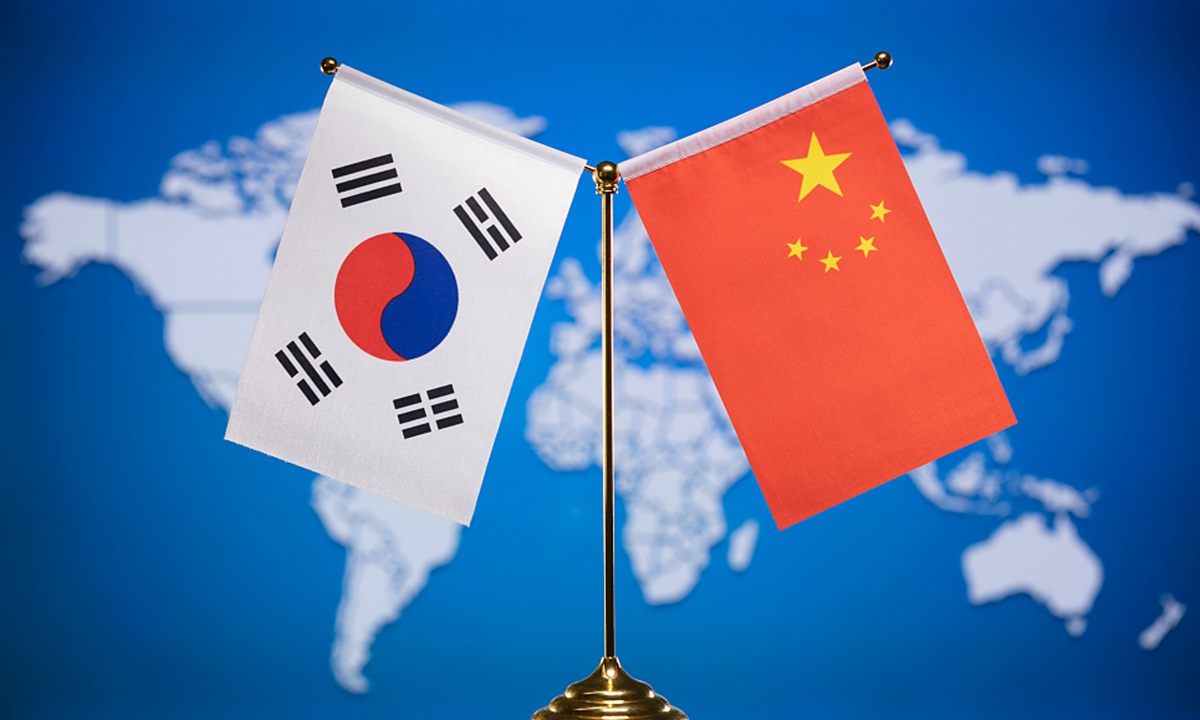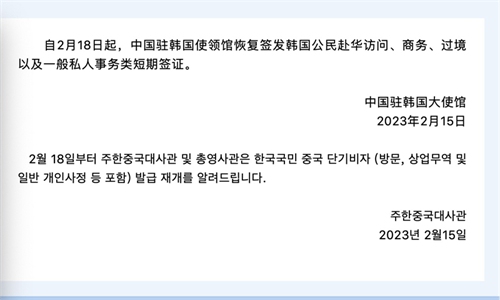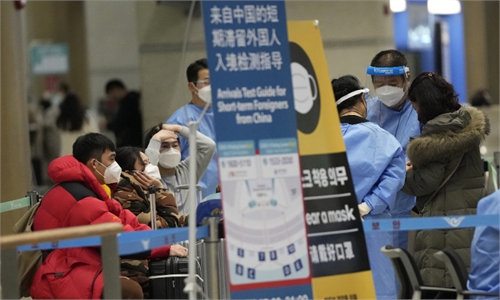Chinese embassy to resume issuing short-term visas to S.Koreans, expected to boost bilateral exchanges, cooperation

China South Korea Photo:VCG
Starting from Saturday, the Chinese embassy and consulates in South Korea will resume issuing short-term visas for South Korean citizens to visit China for business, transit and general private affairs, according to the Chinese Embassy in South Korea on Wednesday.
This is viewed as a positive sign for travel and communications between the Chinese and South Korean people in response to South Korea resuming short-term visa issuance for travelers from China on Saturday.
Chinese observers believe Seoul resumed issuing visas after receiving loud calls from the public, and this positive development between the two countries will boost exchanges and cooperation, and especially help South Korean trade and its economy to recover, which is currently experiencing a downturn.
China's National Immigration Administration will resume the issuance of port visas and the 72/144-hour transit visa-free policy for South Korean citizens from February 18, the administration announced on Wednesday.
But mandatory PCR tests for travelers from China before and after arrival in South Korea remain in place, according to South Korea's Yonhap News Agency (YNA). South Korean President South Korean President Yoon Suk-yeol called Monday for reviewing mandatory COVID-19 tests for travelers from China, saying there should be no disruption to people-to-people exchanges between the two countries, the report noted.
South Korea was one of the first countries to impose entry restrictions on Chinese tourists after China announced in late December 2022 it would downgrade its COVID-19 response from January 8.
As China sees a sharp recovery in economic growth, South Korea certainly does not want to miss out on a free ride on its neighboring country's economic rise, but how much it can benefit from China's growth depends on Seoul's China policy, said Lü Chao, an expert at the Liaoning Academy of Social Sciences, urging Seoul not to blindly follow Washington and pursue the so-called Indo-Pacific Strategy to contain China, which would harm its own interests.
The Korea International Trade Association predicted that the Chinese economy will likely post a 6.9 percent year-on-year growth in the second quarter. Should that prediction materialize, the robust growth in the Chinese economy will likely "raise South Korea's economic growth by an additional 0.16 percentage point and its exports by 0.55 percentage point this year," YNA reported on Sunday, citing the report.
South Korea missed the first golden period during Chinese Spring Festival holidays to welcome floods of Chinese tourists spending their holidays overseas after China reopened its borders, which sparked dissatisfaction in South Korean tourism and marketing sectors, Lü said.
Data provided by Chinese travel platform qunar.com on Wednesday showed that direct flights to South Korea are available from some 13 Chinese cities including Beijing, Nanjing, Shanghai and Wuhan.
"The number of flights is expected to continue to increase after the flight season changes, as policies are optimized and passenger demands change," Guo Lechun, deputy director of Qunar's Big Data Research Institute, told the Global Times on Wednesday.
As China's tourists would unleash a massive demand for international travel after the restart of group tours earlier in February, the resumption of short-term visas should become a new starting point for South Korea to tap into the potential of China's recovery, Lü said.




